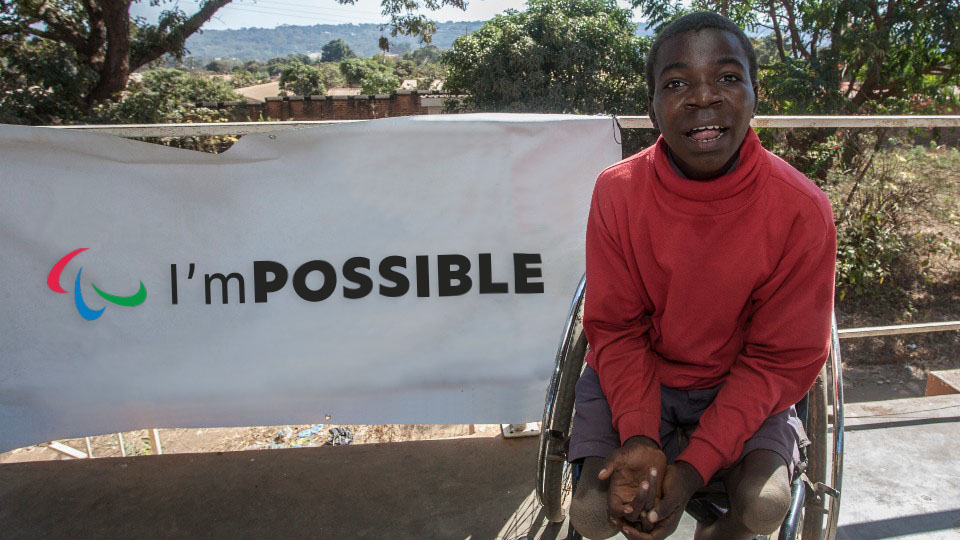The project – Para Sport Against Stigma – will investigate the use of Para sport as a catalyst for change in attitudes about disability and assistive technology (AT) in Ghana, Malawi, and Zambia.
The first activity to take place as part of the programme is an I’mPOSSIBLE Educator Course, which started this week on 16 November.
This week-long course, which takes place online due to current COVID-19 restrictions, will see participants from Ghana, Malawi, and Zambia become certified I’mPOSSIBLE Educators and allow them to deliver I’mPOSSIBLE training to teachers.
This project is part of AT2030, a programme funded by UK Aid and led by the Global Disability Innovation Hub. AT2030 will test ‘what works’ to improve access to AT and will invest £20m to support solutions to scale. With a focus on innovative products, new service models, and global capacity support, the programme will reach nine million people directly and six million more indirectly to enable a lifetime of potential through life-changing AT.
Using a four-pillar approach – education, athlete development, broadcast, and crosscutting research activities – it is hoped the project will build on lessons from the London 2012 Paralympic Games inspiring more understanding of disability and inclusion across target countries.
It is believed that a lack of understanding about disability and the needs of persons with disabilities can create exclusion within communities. The stigma around disability is also thought to be one of the barriers to the usage, development, and delivery of better AT adoption, including wheelchairs, hearing aids, prothesis, and glasses in low and middle-income countries which can lead to poor standards of living for people with an impairment.
Over the next four years (2020-2024) the project’s four pillars will deliver on the following:
Education
Focussing on inclusion, the education pillar of the project centres around the I’mPOSSIBLE initiative. Created by the IPC, this education programme aims to promote the Paralympic values and challenge and change the perceptions of how young people perceive persons with disabilities, thus working towards an inclusive society for all.
Athlete development
This pillar will see the IPC deliver a wide-ranging programme to support the three countries’ aims to develop Para sport. This includes capacity building, coach development, and talent identification.
Broadcast
The IPC will increase opportunities for those in Sub Saharan Africa to have access to live and pre-recorded sports broadcasts to raise awareness of Para sport and its athletes.
Research
Loughborough University academics will bridge and support all pillars through extensive research. Dissemination of the findings will be via a series of publications, case studies, a Communication for Social Change Toolkit, and a Para Athlete Development Guide. The Communication for Social Change Toolkit and the Para Athlete Development Guide will be openly available after the project conclusion and therefore benefitting not only the Paralympic Movement, but anyone with an interest in inclusion of persons with disability and the Para sport development.
Academics from two Loughborough University Schools - Loughborough London and Sport, Exercise and Health Sciences - are working together on this research, pooling their multidisciplinary expertise.
Professor Jo Tacchi, Associate Dean Research in Loughborough University London explained:
“This project offers Loughborough University the chance to work with international partners across academic and practice fields. The research promises to deliver real impact into the work of the IPC and help to build our understanding around issues of stigma and disability, and the positive role Para sport might play.
“We have brought together a research team spanning media and communication, communication for development, sport for development, and design innovation.
“Loughborough’s Head of Para Sport is a core member of the team, and we are working in collaboration with colleagues in the University of Malawi, Chancellor College. This project exemplifies our international focus, interdisciplinary capabilities, and commitment to undertaking research with impact.”
As part of the legacy of London 2012, Loughborough University London helped found the Global Disability Innovation (GDI) Hub, an organisation charged with harnessing academic excellence, innovative practice and co-creation to tackle global challenges around disability.
Andrew Parsons, President of theInternational Paralympic Committee, added: “We are very excited to be partnering with Loughborough University and the University of Malawi on the Para Sport Against Stigma project.
“We want the Paralympic Games to have an even greater impact on society by placing disability at the heart of the diversity debate and by using Para sport as a vehicle to drive the human rights agenda. We know already that our I’mPOSSIBLE education programme is spreading the vision of the Paralympic Movement to young people and having a meaningful impact of their understanding of inclusion.”
Nik Diaper, Head of Para Sport, Loughborough University, also explained how this research is key to the development and growth of Para sport:
“The Paralympic Games have seen rapid growth over the last few years but there is a risk that large gaps emerge between established and developing nations. If the Games are to remain a global event then understanding why these gaps exist and addressing them is crucial for the future of the Paralympic movement.”
The project, also supported by the National Paralympic Committee of Ghana, the Malawi Paralympic Committee, and the National Paralympic Committee of Zambia, is now underway and is expected to run until autumn 2024.
